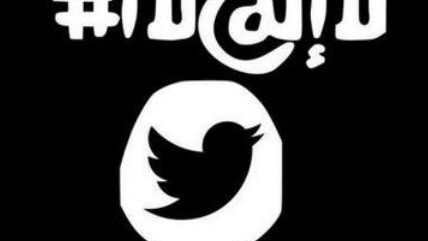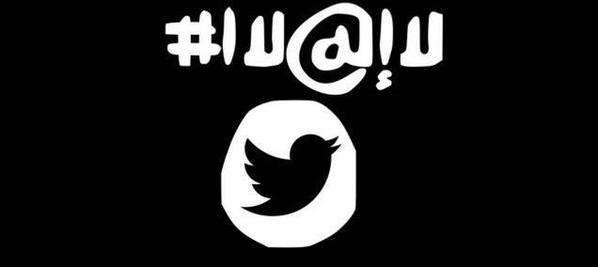Two Americans Headed to Prison After Tweeting Support for ISIS
As Reason regulars are all too aware, the feds have been taking a heavier hand lately when it comes to online speech.


In various European countries, making racially or religiously insensitive statements can get you thrown in prison for "hate speech." In America, thanks to the First Amendment, citizens can avoid being prosecuted for such thought crimes…right? Well, theoretically, yes. But the recent sentencing of two online ISIS supporters tells a different story.
The first case involves a suburban Virginia high-school student, Ali Shukri Amin, who ran an ISIS-sympathizing Twitter account. Amin, 17, was sentenced as an adult Friday to 11 years in federal prison. The teen confessed earlier this summer to running the pro-ISIS Twitter account @Amreekiwitness (now taken down), which offered instruction on how to send Bitcoin to support ISIS, and to helping arrange for another teenage ISIS supporter to travel to Turkey to meet up with members of the Islamic State. Amin was charged with conspiring to provide material support to terrorists, both for assisting his friend and for the Bitcoin instructions.
The second case involves Frederick Remon Robinson, a 46-year-old Houston man who posted ISIS-positive things to Twitter. Robinson was arrested in April 2015 after making statements such as: "If white people hate ISIS so much, then I like ISIS. The enemy of my enemy is my friend. #chopthemheadsoff" and "I say, don't hesitate - start shooting in their cars…find them at home and fire bomb it." Robinson was sentenced to 2.5 years in federal prison plus three years supervised release.
In Robinson's case, the charges don't directly concern his tweets.* Robinson, who was previously convicted of possession of a controlled substance, was charged with owning a firearm while a felon. In this way, the feds were able to sidestep any potential free-speech concerns.
As Ken White has patiently explained many times at Popehat, there are exceptions to First Amendment-protected speech, such as "true threats." But this doesn't mean any threat is unprotected. "Some threats are too rhetorical, too conditional, too hyperbolic, and too far from serious to fall outside the zone of free speech protection," notes White.
Thus, tweeting that you're going to box Taylor Swift's ears or run the Breitbart staff through a wood-chipper or defecate in Prince Harry's mouth, while technically threats, probably do not rise to the level of unprotected true threats absent evidence of genuine intent and/or possibility of carrying said actions out. It must be clear that a reasonable person would take the statement to be genuinely threatening, that the speaker intended it as a true threat, or both.
There's no evidence that Amid is being faulted for making threats; his account merely provided information, albeit information—such as how to send Bitcoin—the Department of Justice (DOJ) was able to portray as "providing material support" to terrorists. But even Robinson's statements such as "#chopthemheadsoff" and "find them at home and fire bomb it," while they may be despicable, likely wouldn't hold up to a true theat standard. Find whom? And to whom is Robinson even speaking? This is angry bloviating, not someone legitimately suggesting he's going to go bomb someone or chop a person's head off.
Still, the federal government has been taking a heavy hand lately when it comes to online speech (as Reason regulars are all too aware). Pro-ISIS tweeting alone might not be sufficient for the DOJ to pounce, but where there's a will… "The Department of Justice will continue to use all tools to disrupt the threats that (ISIS) poses," said John Carlin, the Justice Department's assistant attorney general for national security, in a statement about Amin's case.
Amin's attorney, Joseph Flood, said the teen's support for ISIS came out of anger at the current Syrian regime and America's role in propping it up, and Amin's actions "are a reflection of his deeply held religious beliefs, but also his immaturity, social isolation and frustration at the ineffectiveness of nonviolent means for opposing a criminal regime." The feds were tipped off to Amin's "suspicious behavior" by staff at his high-school, whose observations were "quickly relayed" to law enforcement.
A reddit commenter claiming to be a classmate said that in the weeks leading up to Amin's arrest, the school was filled with "extra 'teachers' and 'administrators' that… were undercover FBI agents," though this hasn't been verified.
* Updated for clarity; while Amin's charges weren't directly speech related, they did relate to things he tweeted as well as his assistance of his friend.


Show Comments (172)